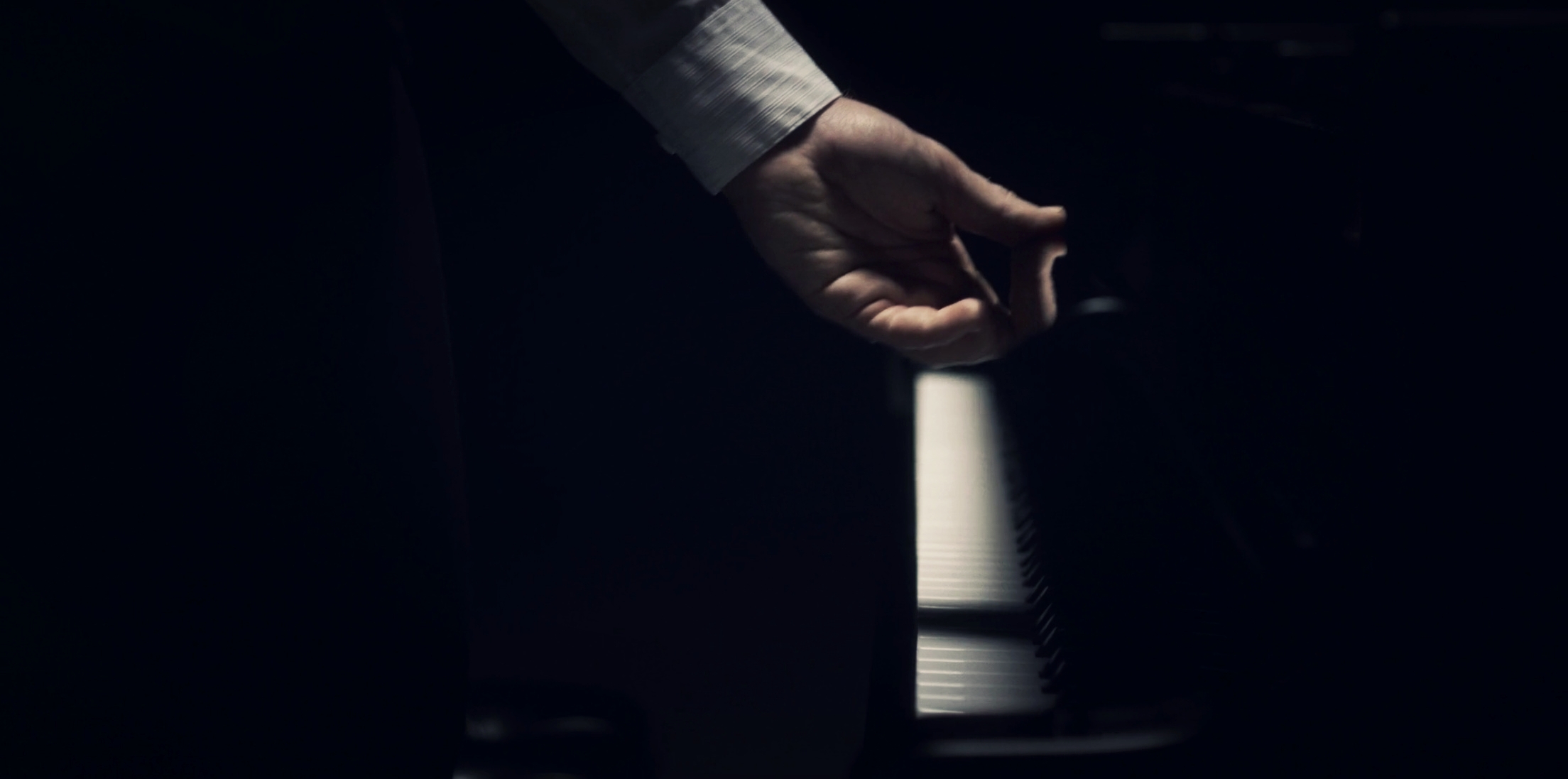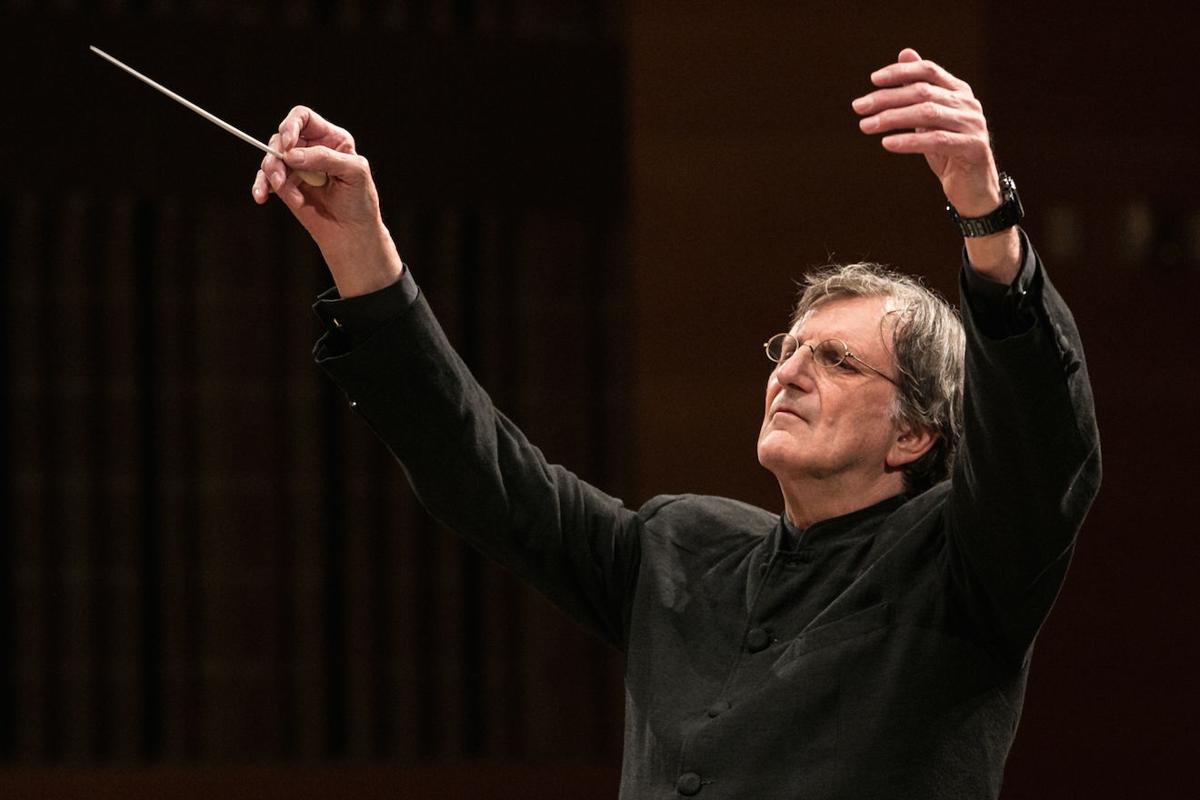During my first lead role in an amateur theatre production of Shakespeare's the Tempest when I was 13 years old, a well established avant-garde conductor called Christopher Lyndon-Gee came to the performance, after the show he walked out and shook my hand, 'he said you truly do have the natural gift'. It was one of the few moments I can remember which set my course as an actor, it was a fuse which was lit early on with a determination that has never dulled. He later wrote my letter of recommendation for Bristol Old Vic Theatre School.
In honor of Echoes Of You premiering at LA Shorts International Film Festival I got back in touch with my old mentors to discuss those early memories in my journey as an artist and how his guidance encouraged me through the darkest times, much like what happens in this film.
LAURENCE
Dear Christopher,
I have a short film called Echoes Of You which is premiering at LA Shorts International Film Festival this year, it’s about music. I couldn’t be there in person to support as I’m shooting my next film in LA. When I read the script it reminded me of your early encouragement, though directly parallel to this story. Here’s what I’ve written so far about it;
I would like to post about it for the LA Shorts screening, if you’d be open to having a bit of a dialog with me about it, that I could publish later as an open letter?
Precision is uniquely important to an orchestra, with so many disparate parts which need to come together with precision and timing, do you ever feel pressure during a performance or is it so well rehearsed by the time you get there, you can feel confident not too many variables will arise?
If you want something bad enough, you will get it, it may not be in the form you had initially conceived because life is not ideal, but it is important to have faith in the poetry of life. My character in the film got what he was searching for in the end just not in the way he thought it would come.
In the week before shooting I read Viktor E Frenkel’s “Man’s Search For Meaning” in which he suggests the survivors of the concentration camps in Aueschwitz of which he himself was a survivor, had something to live for, that they could cherish on the inside. That they had been touched by great works of art, literature, theatre and music and these moments in their life were the memories which got them through.
Confronted with a boy who is living through possibly the worst conditions a child could be subjected to in our society, I think Andrew gave him all that he had, and aside from the odd sandwich and a place to crash, what he had to give was music, the stronger Andrew could instill this dream of music, the better chance that echoes had of speaking through all the overwhelming obstacles this boy had to encounter.
There’s a lot of important things in this film to do with early advantages and art. A Mozart for instance was a child prodigy, his talents throughout time have proven to be an exceptional rarity. He was also very privileged in his early life to have his father devoted to his son’s musical career, Leopold Mozart was not only strict in his disciplining of his son’s mastery of the piano but in his early career, chaperoning him around the court’s of Vienna, getting him to play for Royalty. Picasso’s father was an art teacher, who encouraged his son’s draftsmanship, and was almost deferent to his abilities once Picasso had mastered the brush by the age of 16, his father put his own brush down and resolved he’d never be able to paint as well as that.
A lot of people don’t get that support from their families. In this case it’s necessary to be one’s own support system. To manifest what you would want your heroes to say to you.
I didn’t have a father, but I found along the way some amazing mentors, you were a role model for me as the accomplished figure in the arts that took a shine to my artistic pursuits. Your daughter Francesca took you to see me perform in The Tempest as Caliban in my high school production when I was 14, I remember that experience of validation when you shook my hand afterwards and said that I had the natural talent for acting, it’s honestly something that’s carried me through some of the harder times in my journeys.
As someone who may not have had the same privileges of a Mozart or a Picasso, do you believe that a passion for the art in itself can be enough to carry a person through all the hardest of times?
Hope to speak to you soon!
Laurence
CHRISTOPHER
Dear Laurence,
Wonderful to hear from you! I often think of you, and I follow your Twitter feed and your consistent stream of accomplishments with great interest.
Many many apologies for my hugely delayed reply!! Your letter arrived right at the beginning of the dense period of examinations at the university, followed by an orgy of grading and so on. I was simply swamped and exhausted. Now, thankfully, I have arrived in Europe (Germany, Lithuania to follow) for a summer schedule of festival concerts and recordings. Here my head is clear, and I can with pleasure reply to you. (I fear, however, I did not read your letter thoroughly enough at the time, merely skimmed it, and we must by now have missed the deadline for your Cannes discussion. No matter: you can use these ideas any time.)
- Yes, the precision required of an orchestral performance is extraordinary: tens of thousands of fine details that must be absolutely exact, to the micro-second and to the exact decibel of loudness or softness and relative balance. And then some: matters of interpretation and mood and style; what the lay person would term the emotional content of the music.
All of this is, of course, rehearsed with a surgeon’s attention at the microscopic level. But in performance, other elements come into play, and the “excitement” of having a live audience causes a certain level of freedom and even of improvisation, within broad limits that have been established. It’s this that brings the music alive, and means that no two orchestras sound exactly alike. I guess we would call it personality; collective personality, that is. Every orchestral musician and every conductor is acutely aware of what this is, though it is impossible to define.
- Yes, wanting something badly enough can get you quite a distance along the road to the object of your life’s passion. You would not believe the humble beginnings to which I can attest - I’ll tell you all about it some day. But obstacles do come in the usual guises: politics, connections, the power of money and so on. Even these can be overcome ... but it’s a fight that threatens to sap one’s life force.
- In a place like Auschwitz (or, for that matter, a poor neighbourhood of New York - The Bronx, say) it is the power of one’s inner life that sustains and gives strength to survive. Yes, having a vivid mental image of, say, a Beethoven or Mahler Symphony, or something as “simple” as a Schubert song, Can be all the difference between despair and the power to continue.
- Mozart is a miracle so rare as to be unique, a peculiarity. Just recently, a ten-year-old boy won the Menuhin violin competition; he plays superbly, of course, and with an almost parodistic confidence and “maturity” (an illusion, I think), but his is not a creative gift, like Mozart's, it is the reproductive talent of the performer, often merely copied from other performances seen. An awful lot of what we do, as executing musicians, feels like being some kind of performing monkey .... most especially when, for instance in a “high society” reception at someone or other’s Fifth Avenue apartment, one is expected to play some kind of encore for the amusement of the very very rich.
Mozart is something else; a breath of the divine. Picasso too; Artemisia Gentileschi — who so far excelled her father — another instance of this kind of miracle.
Thus it is that I consider my composing to be infinitely more important that anything I do on the podium.
In different ways to you, I also did not have a father or mentors until a couple of teachers took me under the wing quite late, in my twenties. And yes, I simply knew I had something inside me that had to get out, and I fought and fought until it did.
I’m greatly honoured that you ascribe to me some of the affirmation that helped you, too, believe in yourself. I still remember that Caliban! Everything about the production was meritorious, a good level school effort. Then, you sprang forth, hidden in bushes or whatever somewhere downstage, and you simply had it, the gift, the magic. I know it’s going to take you a very long way indeed.
A while back, you invited me to a private screening of a new movie, I think it was Road to the Well; and I would have come, but your invitation arrived only about 24 or 48 hours before the LA date. Another time, ask me early enough (a week’s notice?) and I WILL hop on a plane for “the coast”. Would love to see you and catch up with your work .... and I still have those extensive score sketches that I did for Possessions, and I greatly hope we will indeed do a movie together one of these days.
Warmest good wishes,
Christopher






